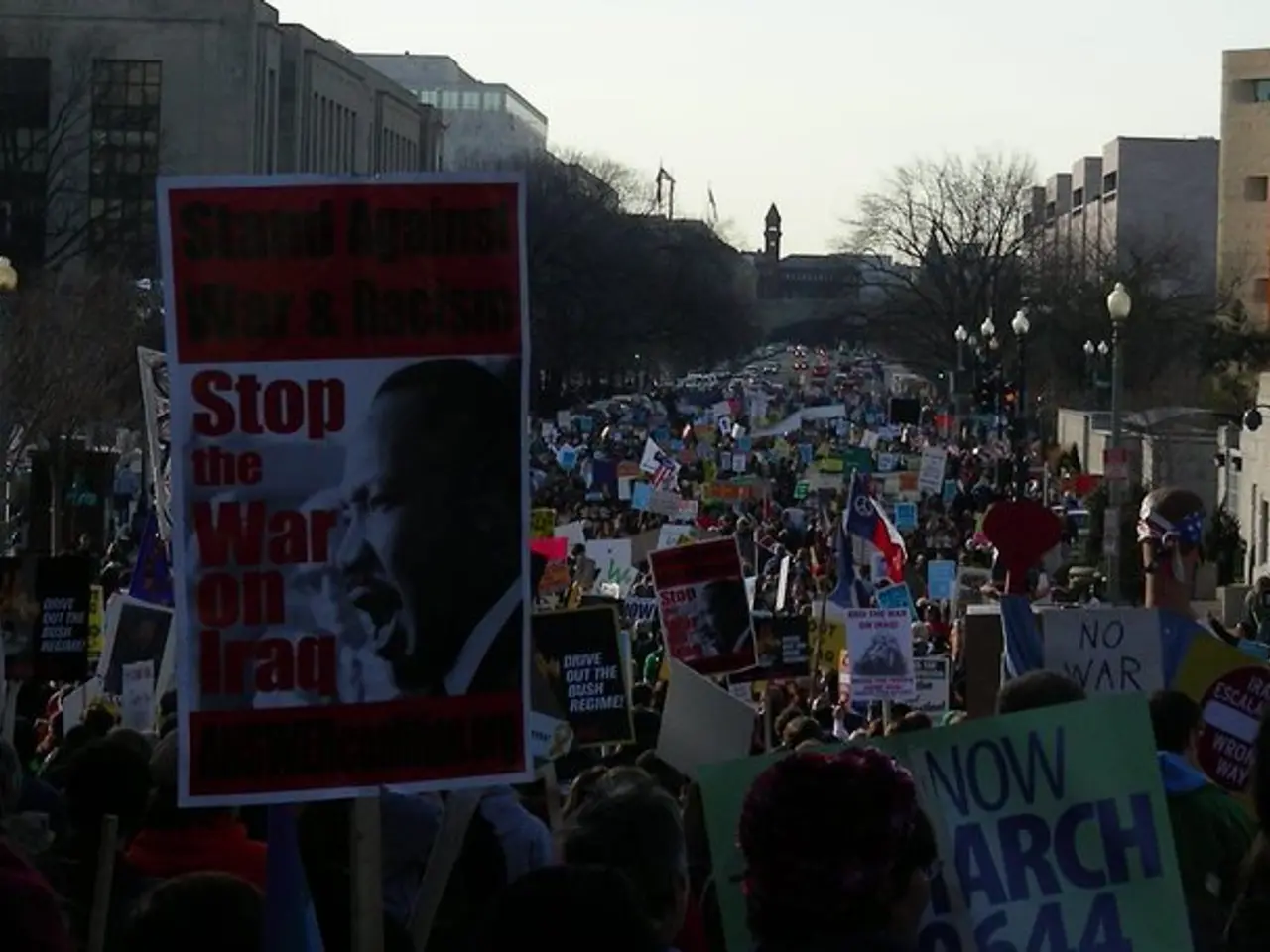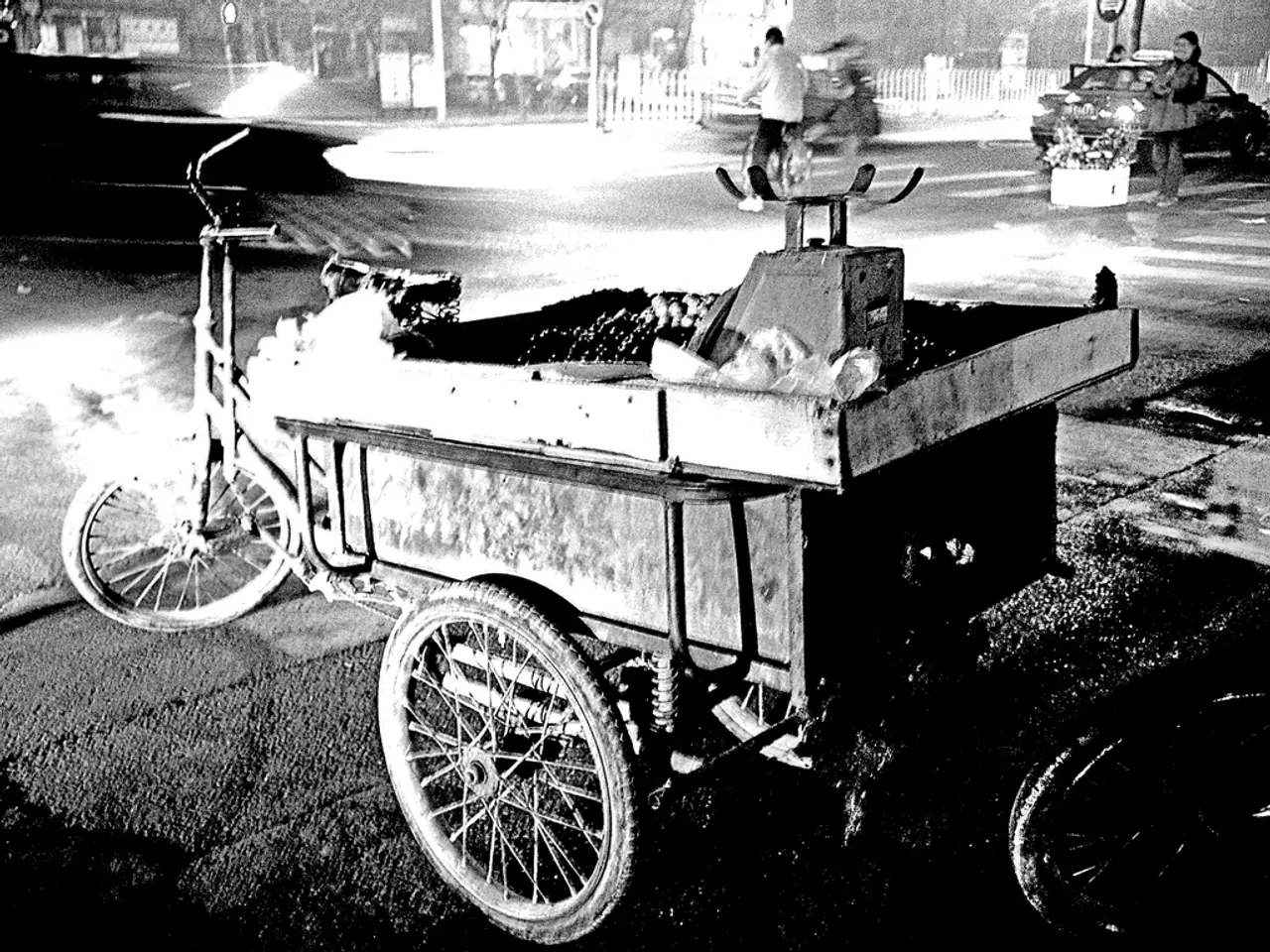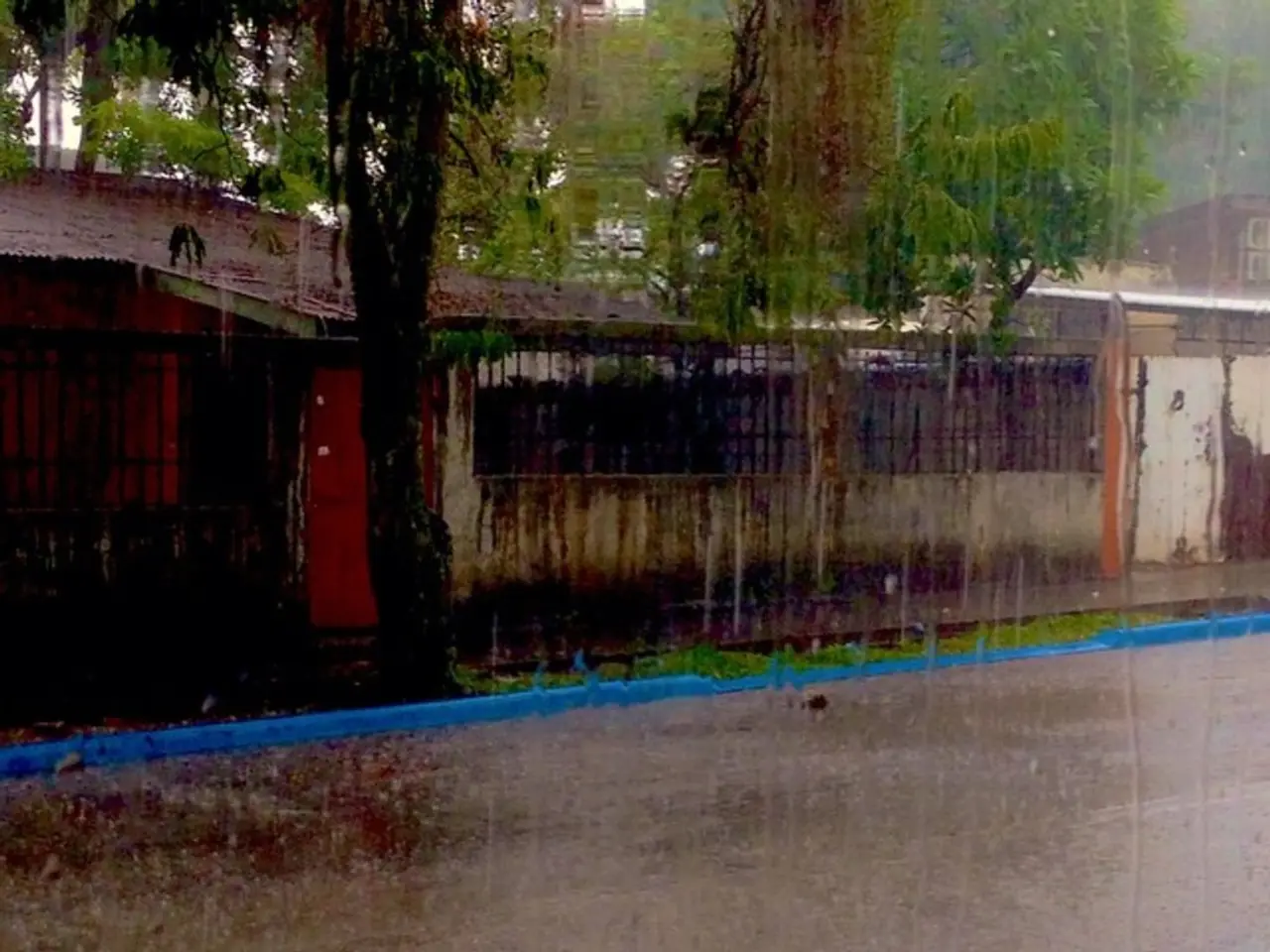Photos accumulate of detained Democrats during Trump's enforcement crackdown
In the age of President Donald Trump's second term, political tensions have reached new heights, with federal agents clashing and arresting U.S. elected officials at unprecedented rates. This escalation can be traced back to the administration's intensified mass deportation policies, characterized by expanded raids and increased enforcement tactics.
Cities such as Los Angeles, New York, and Chicago find themselves at the receiving end of these operations, leading to volatile situations, including riots, as happened in downtown Los Angeles after ICE raids[4]. The White House's rhetoric accuses Democratic leaders of using immigration for political gain, exacerbating tensions between federal agents and local governments opposed to these raids[4].
The Trump administration set ambitious goals to carry out the "single largest Mass Deportation Program in History," with the intent to deport between 15 and 20 million people. In pursuit of this plan, authorities signaled they would secure both the Alien Enemies Act and the Insurrection Act to enforce the deportations, raising significant legal and constitutional questions[1][2].
The backlash against these controversial policies is apparent among local elected officials who argue that the aggressive federal actions endanger immigrant communities and erode local-federal trust[1]. Courts in New York and Texas have temporarily blocked the use of the Alien Enemies Act in deportations within their jurisdictions[2]. Foreign governments, primarily in Latin America, have refused to accept deportees and raised concerns over their treatment[1][2].
Advocacy groups and civil rights organizations have firmly criticized the raids and mass deportations as inhumane and unlawful. Issues like family separations, targeting of vulnerable populations, and disregard for due process are major concerns[4]. Supreme Court decisions, with a conservative majority including justices appointed by Trump, have generally permitted deportations to proceed but have occasionally served as a check on the most extreme applications[5].
The increasing confrontations between U.S. elected officials and federal agents symbolize a deeply polarized national discourse on immigration policy and federal authority, indicative of widespread disagreement on the appropriate role of government and the treatment of immigrant communities.
The escalating political tensions under President Donald Trump's second term have extended to health concerns, as debates around mass deportations and their impact on immigrant communities escalate. General news stories now often feature accounts of riots and volatile situations in cities like Los Angeles, New York, and Chicago, caused by the administration's immigration policies.
Meanwhile, the war-and-conflicts domain has seen an unusual cross-over, as foreign governments, primarily in Latin America, refuse deportees and express concerns over their treatment. On the legal front, courts in New York and Texas have temporarily halted the use of the Alien Enemies Act in deportations within their jurisdictions, raising questions about the lawfulness of the administration's actions.
In the realm of crime-and-justice, advocacy groups and civil rights organizations staunchly criticize the raids and mass deportations as inhumane and unlawful, highlighting issues such as family separations, targeting of vulnerable populations, and disregard for due process. Interestingly, the issue of mass deportations has also found a place in car-accidents discussions, as immigration-related incidents contribute to traffic safety concerns in cities undergoing frequent raids.
Overall, the national discourse reveals a deep division, with politics being a significant contributing factor. The tone is increasingly polarized on immigration policy and federal authority, indicating widespread disagreement on the appropriate role of government and the treatment of immigrant communities.





